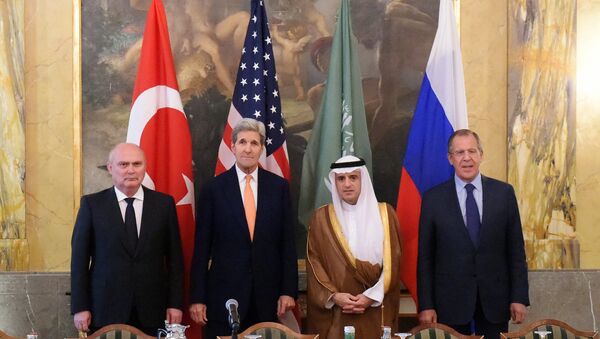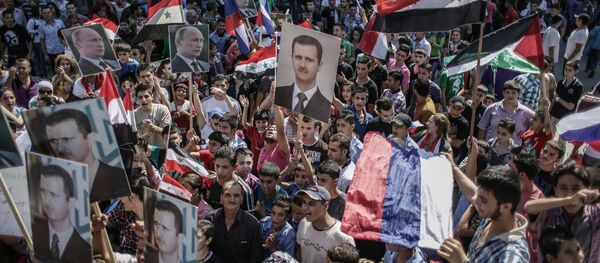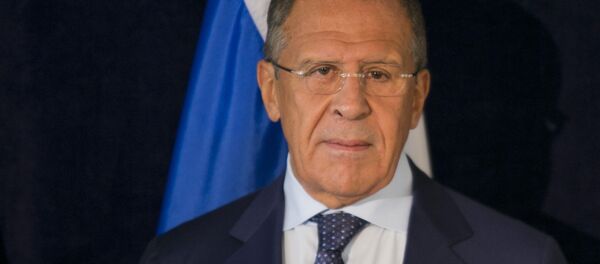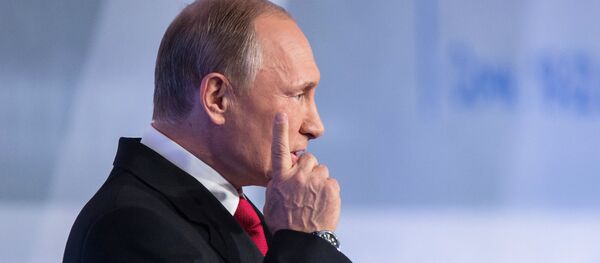"We have expressed a number of specific ideas on all issues which were discussed with our colleagues from the United States, Turkey and Saudi Arabia, these ideas will be continued, I hope. We have agreed to continue contacts, and we stressed the need to make sure that, simultaneously with the beginning of the intra-Syrian dialogue between the government and the united opposition, the patriotic opposition to provide external support for this process," Lavrov told the reporters after the meeting.
The top Russian diplomat stressed that "there are many external actors involved in the Syrian crisis, not only the four who convened in Vienna today."
Iran and Egypt must also take part in efforts to solve the Syrian crisis, Lavrov noted.
"Further contacts must me carried out in a representative format, which implies the involvement of a number of countries in the region, including, as we underlined, Iran and Egypt," he told reporters.
According to the minister, the "support group" on Syrian settlement should consist of around a dozen countries.
Lavrov also noted that Russia and Jordan will coordinate their military efforts in Syria on a daily basis.
"As for Jordan, we have, indeed, in accordance with agreements between the Russian president and the Jordanian king, agreed on a military level to create a mechanism in Amman, where representatives of defense ministries could coordinate action against terrorism on a daily, professional basis," Lavrov told reporters.
The minister added that he had offered the United States and Saudi Arabia to make use of the new Russian-Jordanian coordination mechanism.
A fair settlement of the Syrian crisis requires patience and searching for compromise, Sergei Lavrov said.
"The conflict in Syria is lengthy, bloody, inveterate, and too many players are involved in it. In order to solve it, to settle it justly, one needs patience, to look for compromise and balance of interests, which do not always match," he noted.
Lavrov also dismissed media reports, claiming that the Russian, US, Saudi Arabian and Turkish foreign ministers during a Vienna meeting agreed on resignation of Syrian President Bashar Assad.
"Rumours have begun to circulate that we are discussing or will be discussing that President Assad must go after some time. This is not true," Lavrov said.
"Of course, there will be speculation. The speculation appeared before this meeting even took place. I heard that the rumors are being spread already that it has been agreed on in some place or another that in some period of time Assad will step down. This is not the case," Lavrov told the journalists after the meeting.
"We have confirmed our position <…> Our position is a very simple formula — the future of Syria, the future of the Syrian president, the future of any other individuals must be decided by the Syrian people alone," Lavrov added.
Washington heads a coalition that has been conducting airstrikes on ISIL positions in Syria without approval from either the UN Security Council or Damascus. On September 30, Russia began precision airstrikes on ISIL positions in Syria at Assad's request.
Since the beginning of the air campaign, Russian Aerospace Forces have carried out some 830 strikes, killing several hundred militants and destroying dozens of command centers, and depots used by the terrorists.
Unlike Russia, which has been engaged in efforts to find a political solution to the Syrian conflict, the United States and its allies, including Turkey, do not see Assad as the country's legitimate leader, and support the Syrian opposition which aims to oust the Syrian leader.





